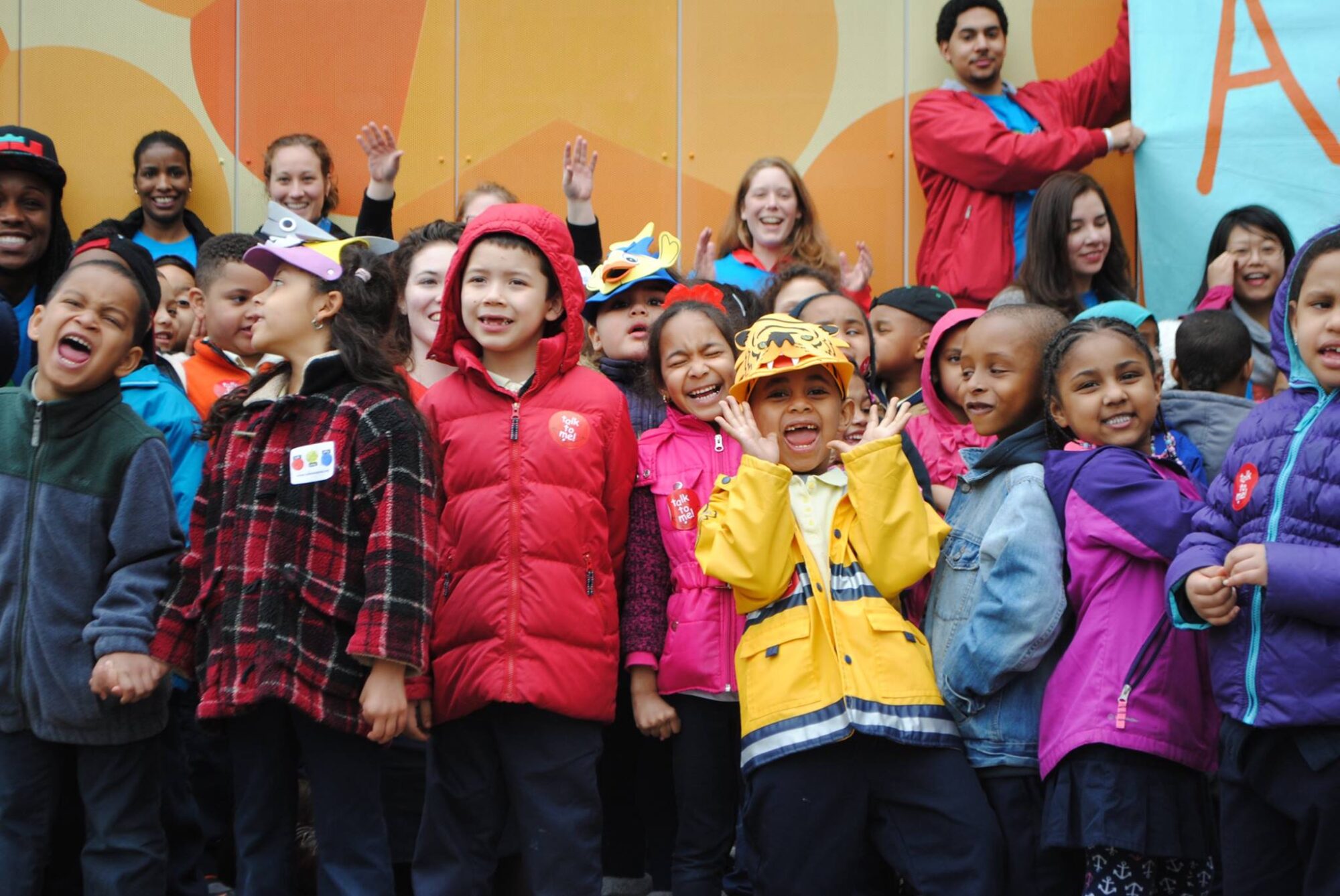
Early Education
Expanding high-quality early education in Boston and Massachusetts20 Years of Investment and Impact
Our legacy Early Education Program began when Barr Foundation made its earliest grants in 1999 and concluded in 2020, when transition grants for the portfolio ended. We are no longer considering new funding proposals for this program.
Over a 20 year period, Barr invested over $47 million through its Early Education Program. Principally focused on Boston, with targeted statewide investments, the Foundation supported a set of partners advancing (through practice and policy) developmentally appropriate early learning and school readiness. Twenty years ago, the field was largely focused on increasing access to childcare. Over time, that focus has both shifted and expanded to include not only increasing supply, but also enhancing quality programming that promotes healthy child development. That elevation of quality is now increasing attention to child outcomes—in other words, are children getting what they need to develop? Equally important, we learned about what it takes to build quality across settings—public schools, community-based programs, and home-based care and education—so that more families now access more options that support their children and meet their unique needs.
In 2015, as part of a strategy redesign at the Foundation, Barr decided to conclude its grantmaking in early education. We take enormous pride in the work of our partners, and we committed ourselves to a responsible exit from this field, awarding $4.6 million in transition grants to enable them to be as resilient as possible upon the sunset of funding.
Below, you can find further information about Barr’s Early Education Program—what our goals and strategies were, who our grantees and other key partners were, what we achieved together, and what we learned about the role philanthropy can play in catalyzing and stewarding progress in a field.
We are no longer considering new funding proposals for this program. For any question related to Early Education at Barr, contact Kimberly Haskins.
Program Timeline
Learn more about Barr’s support of early childhood education, how our strategy adapted based on what we learned, and key highlights that occurred in our local early education field.
How Were Grant Funds Spent?
$12.275M to policy and systems: key elements of a healthy, child-centered early education ecosystem
$19.45M to early literacy: evidence-based curricula, teacher supports, and data to build high-quality, effective programs
$12.55M to early childhood facilities: developmentally appropriate spaces to play and learn
$3.325M to families as first teachers: healthy childhood development starts at home
- Early Literacy
- Families as First Teachers
- Research, Policy, and Systems
- Developmentally Appropriate Facilities
Meet Our Partners
For nearly two decades, we worked with organizations that focused on a variety of work that comprise the early education ecosystem. Below, we are pleased to highlight some of our partners’ work, focusing on: families as first teachers, early literacy, early childhood facilities, policy and systems, and Pre-K in Boston.
Raising A Reader Massachusetts
Raising a Reader Massachusetts is an early literacy family engagement organization working to close the literacy opportunity gap by helping families develop high impact home reading routines.
In addition to receiving a rotating supply of high-quality children’s books, through workshops parents learn about dialogic reading, an interactive technique that encourages adults to prompt children with questions and engage them in discussions. With this technique, even a picture book without words can spark imagination and build critical vocabulary.
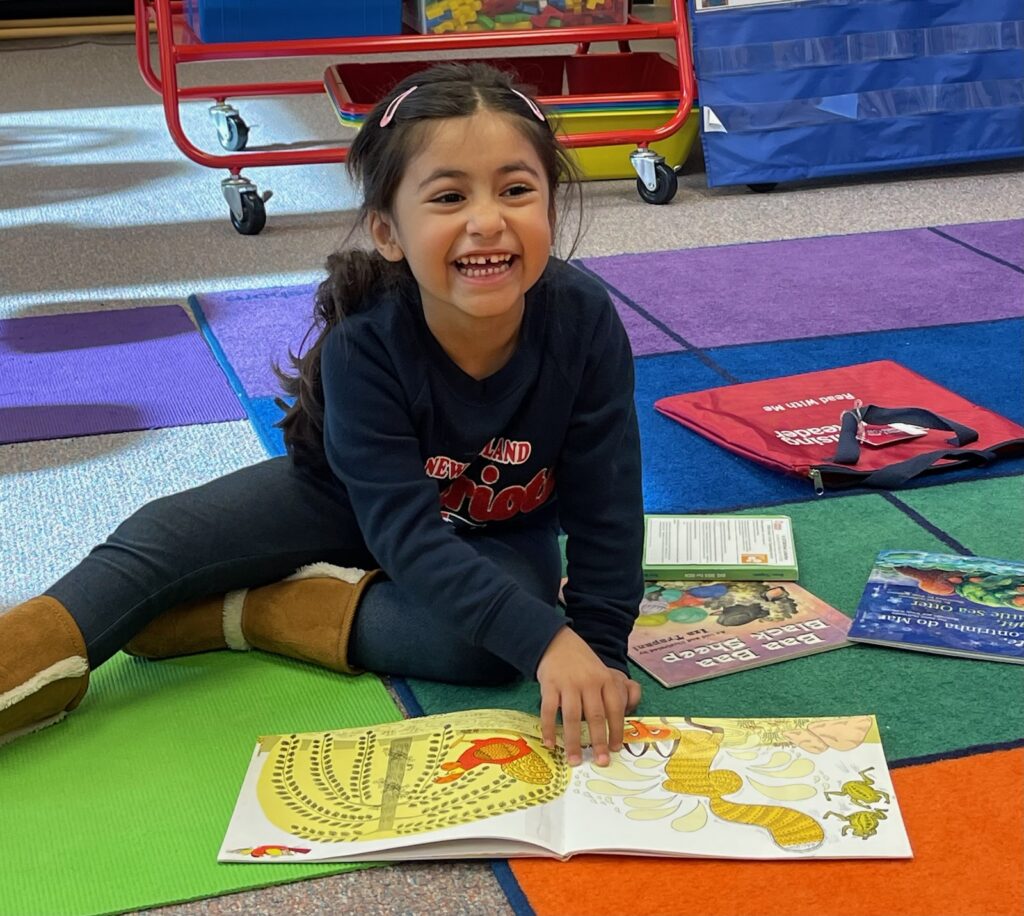
First Teacher
First Teacher is a community of parents and caregivers working together to prepare all our children for success in kindergarten and beyond.
Since 2014, First Teacher has worked with families with at least one child under the age of 8 who live in various Boston neighborhoods, primarily Roxbury and Dorchester. First Teacher families build community and work together through book clubs, community events, informal parenting discussion sessions, playdates, wellness gatherings, and workshops.
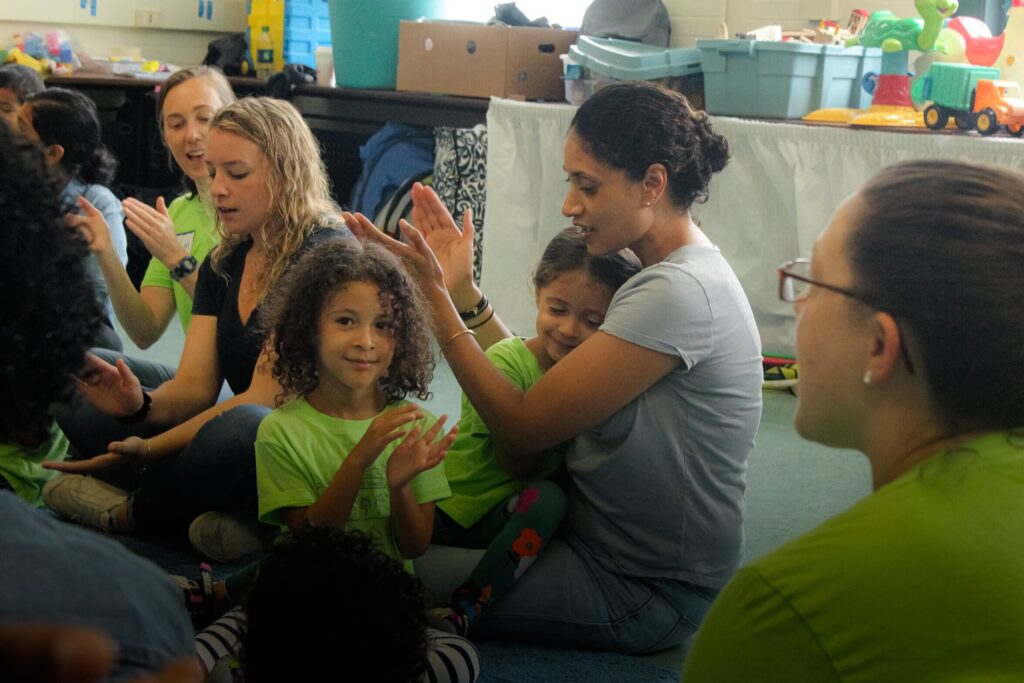
Smart from the Start
Smart from the Start (Smart) is a trauma-informed, multi-generational family support and community engagement organization with a mission to promote the healthy development of young children and families living in the most underserved communities of Boston, Washington, DC, Atlanta, and Philadelphia.
Their strengths-based, culturally reflective approach reaches out to families and empowers them with the tools, resources, and support they need to thrive.
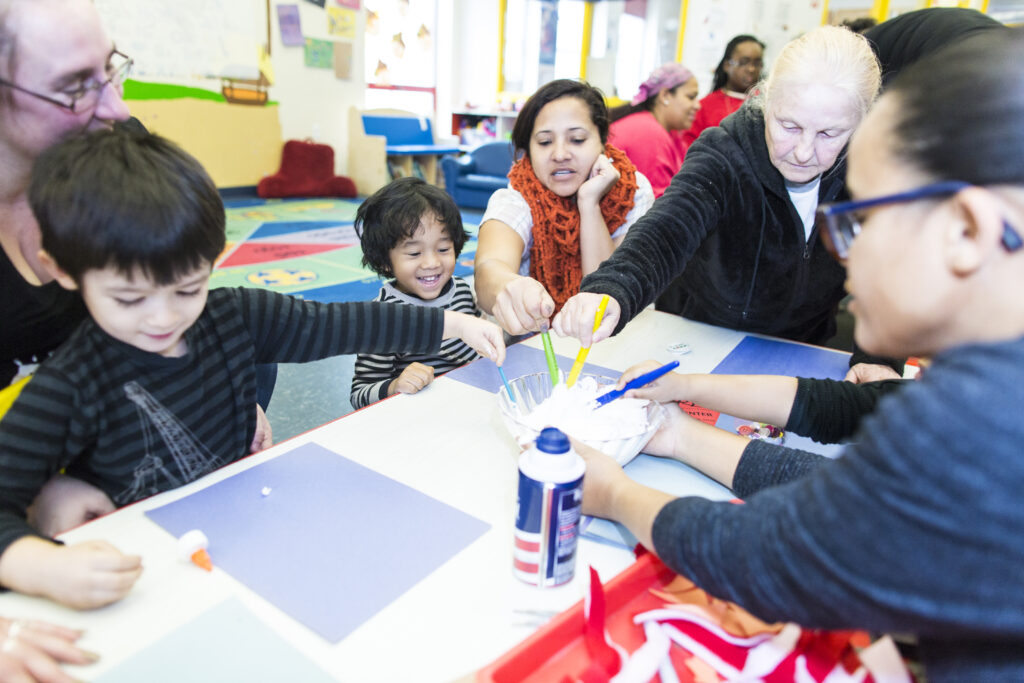
Boston Public Schools Pre-K
Boston Pre-K is a high-quality, public pre-kindergarten program for Boston families, funded and administered by Boston Public Schools.
Designed for children ages 3 and 4, this program offers over 3,000 seats at Boston Public Schools and 1,500 across community settings including community-based organizations, independent schools, and family child care providers.
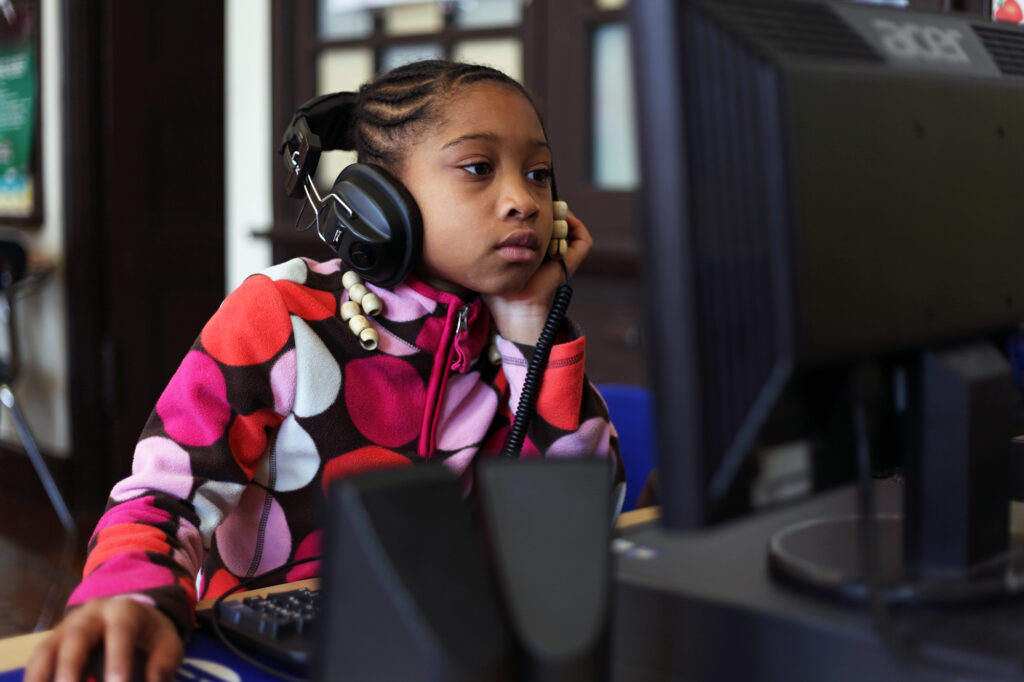
Boys and Girls Club of Dorchester
An innovative community partnership at Boys and Girls Club of Dorchester works to close achievement gaps and set the stage for connections across the Commonwealth.
In 2006, it was the first community-based program to adopt the Boston Public Schools’ preschool model. This partnership was the inspiration for Boston K1DS. These “firsts” led to lasting impact: Boston K1DS became the model for the partnerships in the federally funded preschool expansion grant program.
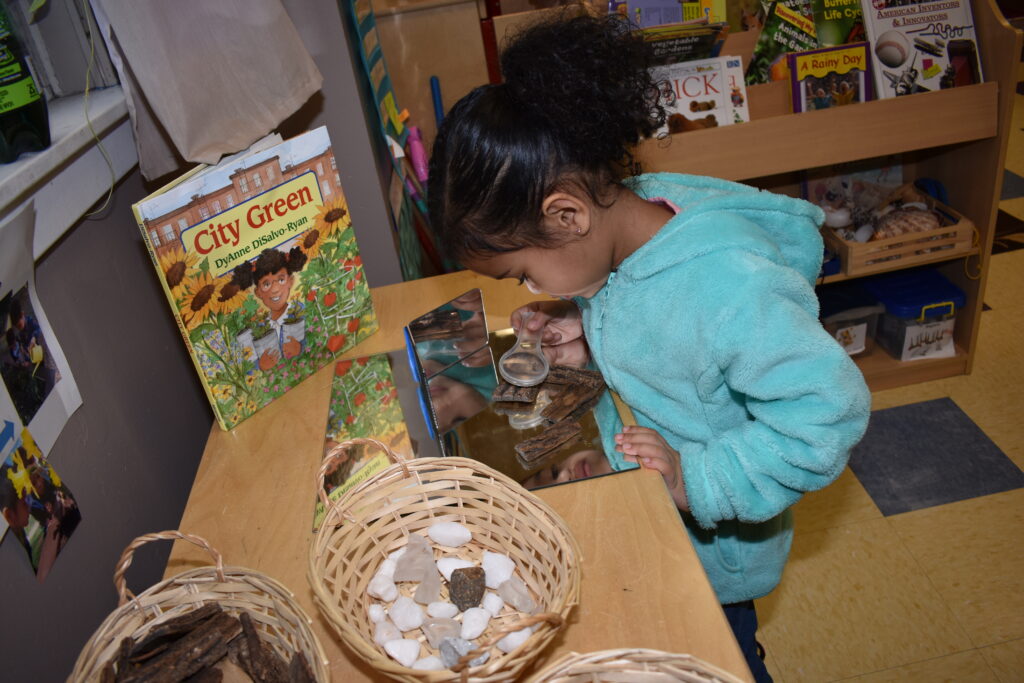
Children’s Investment Fund
Children’s Investment Fund’s mission is to improve the quality of and expand access to early childhood education and out-of-school-time programs for children from low- and moderate-income families.
The Fund believes that all children deserve to learn in safe physical environments that help support their healthy development. Through technical assistance, training, and loan financing, Children Investment Fund helped to create high-quality educational spaces for children.

Strategies for Children
Strategies for Children works to ensure that Massachusetts invests the resources needed for all children, from birth to age five, to access high-quality early education programs that prepare them for success in school and life.
From policy and regulatory advocacy, to raising public awareness, Strategies for Children works to make high-quality early education a reality for all. One of Barr’s earliest partners, Strategies for Children is a trusted ally and champion of the Commonwealth’s children.
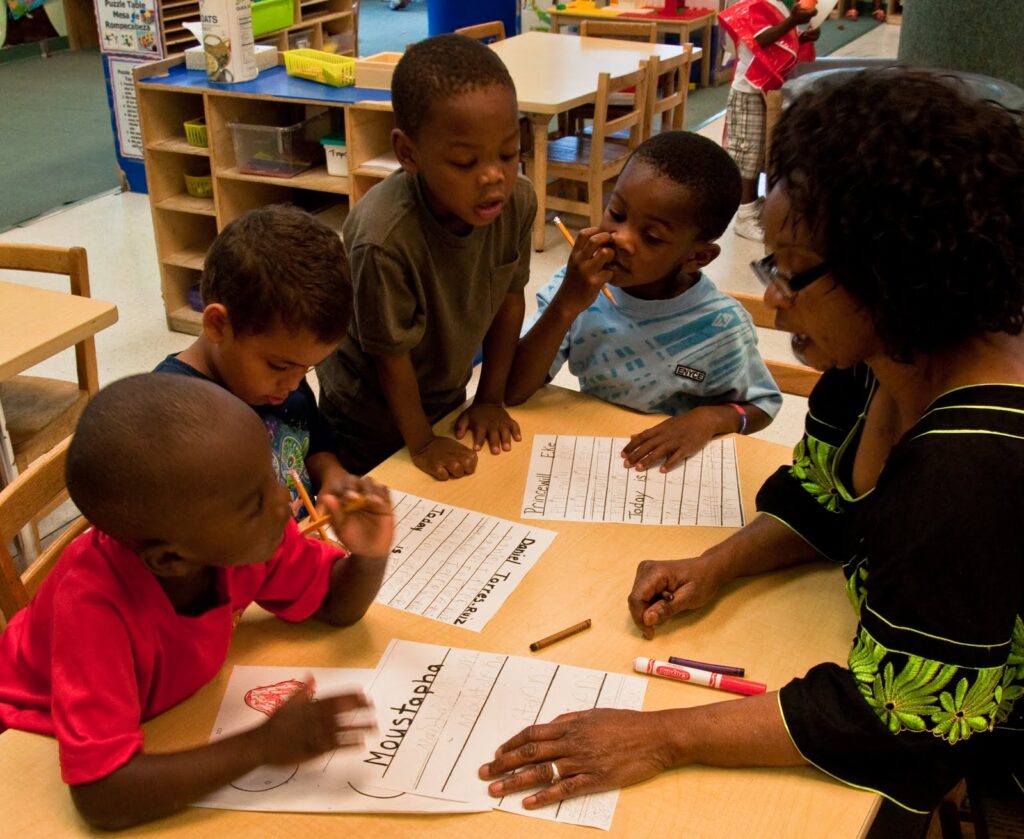
Barr’s Approach to Strategy Transition
In 2016 and 2017, Barr awarded $3,815,000 total in transition grants to 15 organizations. With an average grant period of two years and a few extending to three years, some of these transition grants will be active through September 2020.
As we brought these investments to a close, it was an important priority for Barr to support our partners through this transition. After personally sharing the news with all affected organizations, we implemented a transition process grounded in three key principles:
- Respect: Respect for the partnerships that developed over time.
- Flexibility: Transition grants designed with flexibility to allow organizations to build capacity, if needed, in key areas (communications, fundraising, evaluation, etc.) to enable them to be as resilient as possible upon the sunset of funding.
- Knowledge Sharing: Shine a spotlight on good work and lessons learned to build understanding in the field.
Early Education Insights
View all View all blog posts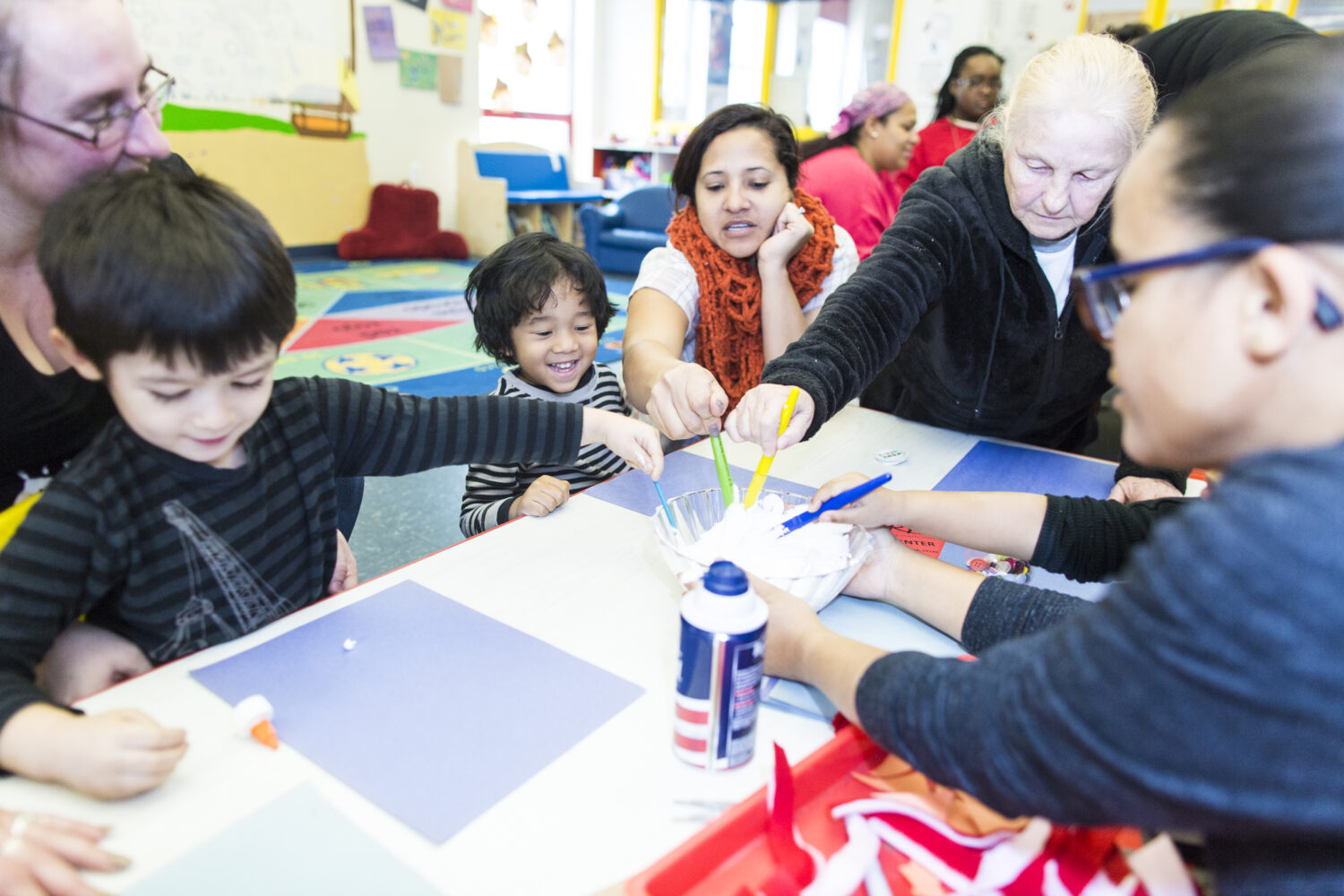
Five Lessons from Two Decades of Early Education Grantmaking
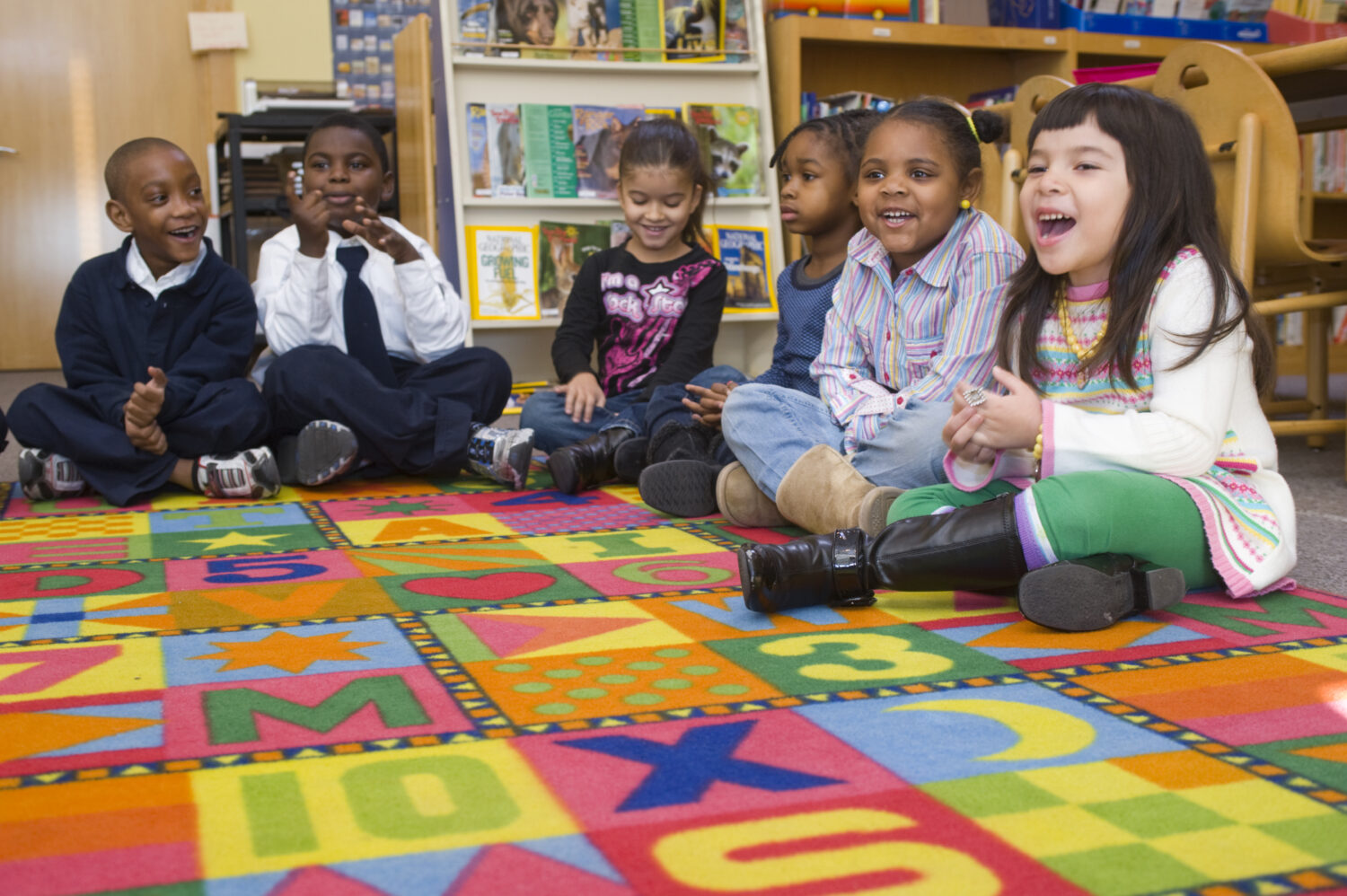
Quality Counts for Strong Starts
